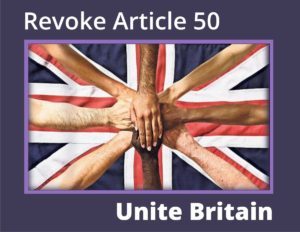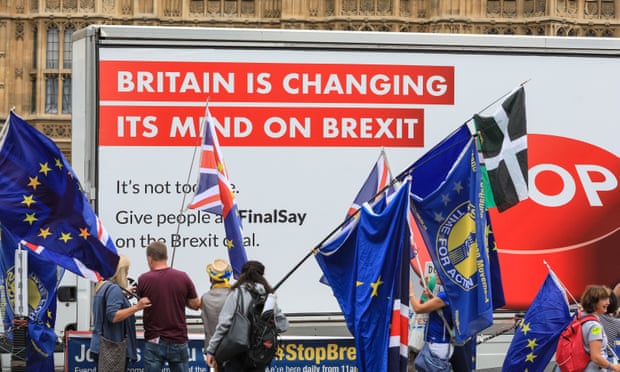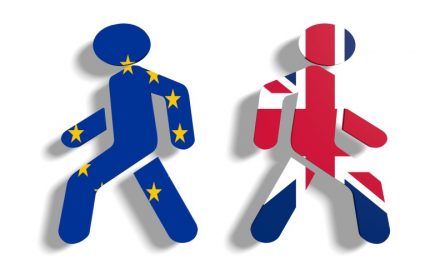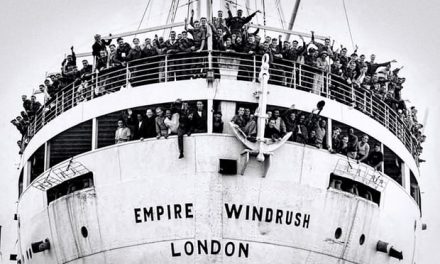The long shadow of Euroscepticism in British politics is the product of an illusion, born of simplification and misrepresentation of history. It’s an illusion that can only be countered if we look objectively at the real history of economic and political cooperation across Europe in the wake of the First and Second World Wars (which occurred barely 21 years apart). Since 1945, Europe has benefited from a period of unprecedented peace – indeed, the longest period of peace for over 3,000 years – which is not attributable to NATO membership (helpful though this has been) but to Winston Churchill’s vision of uniting the economies of Europe and encouraging European nations to start working together on issues they cannot control on their own, such as climate change and outrageous tax avoidance by multinational companies.
The fundamental problem underlying the parlous situation in which our country stands today, two and a half years after the EU Referendum in 2016, is that the English Eurosceptics who drove the Leave Campaign were never told they’d have to produce a detailed, written prospectus for what they were proposing. In contrast, in advance of the Scottish Independence Referendum in 2014, the SNP produced a detailed, 670-page proposition outlining precisely what Scottish Independence would look like, associated potential benefits and predictable risks, and a method and timescale of implementation. Hence, Scots, including 16 and 17 year olds, had a crystal clear choice in 2014 between current UK membership (known in detail) and the SNP’s alternative, detailed Independence proposition.
In contrast, what choice did UK voters have in 2016: either Remain in the EU (on terms known in detail) or Leave the EU (on terms completely unknown). Indeed, even today, Eurosceptics in the Conservative Party, including our own MP, Sir John Hayes, cannot agree on what sort of Brexit they actually want, let alone how to achieve it. For example, there are advocates for: a “hard no-deal” (crashing out with no negotiated agreement and paying not a penny towards settling our existing legal obligations); a “managed no-deal”; a “clean Brexit”; “Canada +++”; “Norway +”; and several other variations. Incidentally, please be wary of any option that has a “+” attached to it, as all this means is that the basic deal would be bad for the UK but, somehow, miraculously, when English Exceptionalism is brought to bear, it will instantly become a fabulously exciting option for us.
Today, our country faces three options: (1) remain in the EU on the terms we currently enjoy (defined in detail); (2) leave the EU on the basis of Theresa May’s 504-page Withdrawal Agreement that significantly undermines our sovereignty and a 26-page Political Declaration that isn’t worth the paper on which it’s written (but is defined in detail); and (3) leave the EU on the basis of an exit proposition Eurosceptics have never yet expressed in writing.

So, what’s my proposed solution?
- Temporarily revoke Article 50, so we can start getting our act together as a nation.
- Tell Eurosceptics to develop a written, detailed proposition for whatever version of Brexit they may, eventually, agree and define.
- If and when the Eurosceptics produce a detailed proposition, hold another Referendum to give voters an explicit choice between three, detailed propositions: remain in the UK on the terms we currently have; leave on the basis of Theresa May’s unenforceable Political Declaration; or leave on the basis of whatever terms eventually defined by the Eurosceptics.
Meanwhile, we can press ahead with building a fairer, more just, more equitable society in the UK and dragging our country back from being the 6th to the 5th largest economy in world, which is where we used to be prior to the EU Referendum, when we were the fastest growing G7 economy, not the slowest.
We live in a great country and can definitely make Britain great again, but only by calling the bluff of the Eurosceptics. We must tell them to define, in writing, what they actually mean by Brexit, so we can then we can vote on their proposition.




